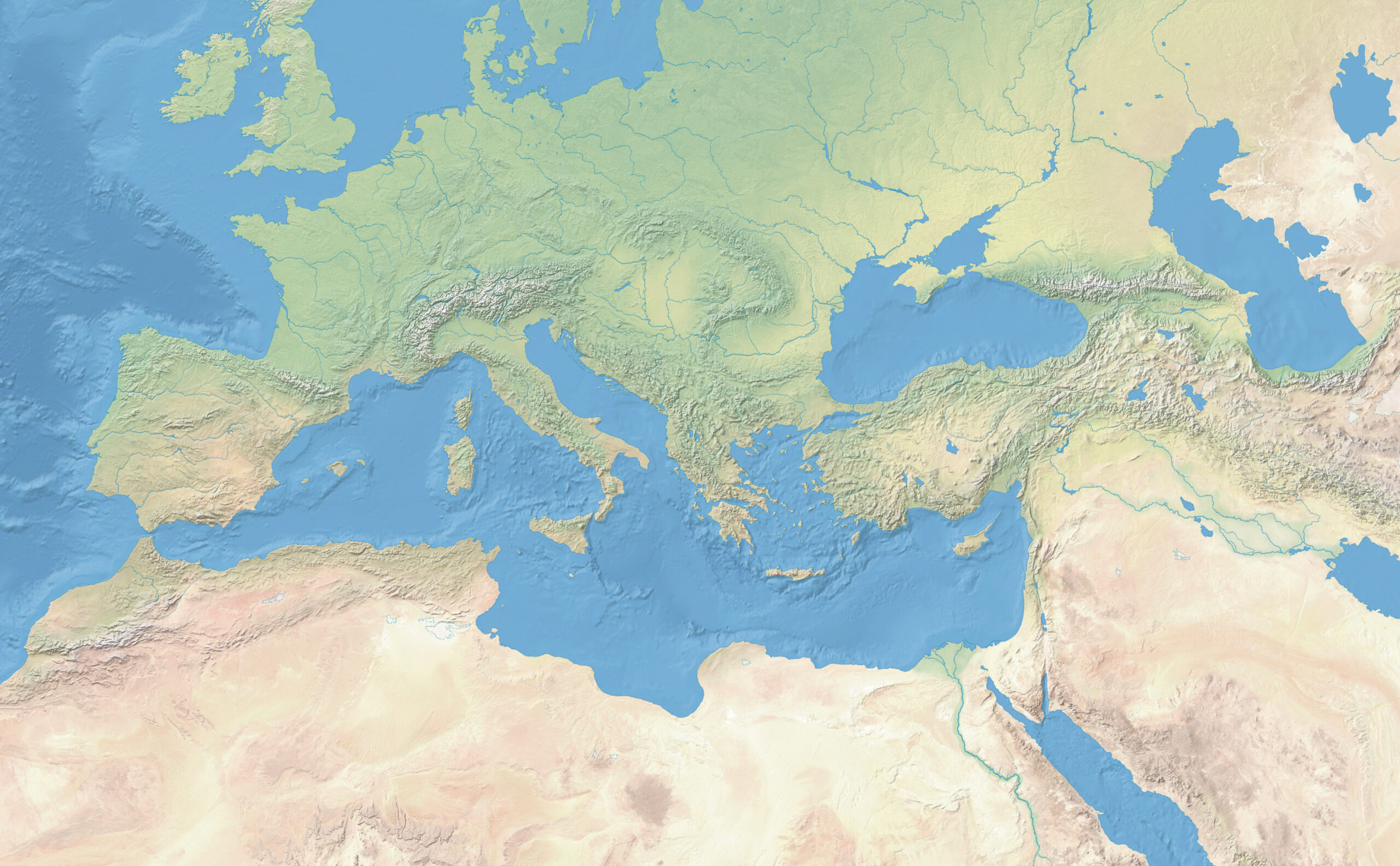Catalonia’s opportunity in the new Mediterranean equilibrium

By Rosa Cabús
29/01/2021
During the Cold War, there was complete strategic alignment between the United States (US) and Western Europe, evidenced in particular by the creation of the North Atlantic Treaty Organization (NATO) so as to prevent a potential military attack from the Soviet Union (USSR) and its satellites, who themselves would later form the Warsaw Pact. Article 3 of the Atlantic pact demonstrated the unanimity by formally articulating the legal basis for stationing US forces in Western Europe. The development of specific agreements allowed the US to have land and facilities within NATO members’ territories. Although the allies initiated more flexible approaches, such as the dual-key systems on nuclear weapons, the overall strategy did not change. The underlying message was that any Western internal disagreement had to be quashed in favor of the common good.
Thirty years after the collapse of the Soviet regime, the dissolution of the USSR, and having left behind the unipolar tendencies of the 1999s and at the beginning of the 2000s, the US is now engaging in a new era of great-power competition with Russia and China. However, its current treaties still respond to an outdated Cold War logic. Historical frictions within the Western block, which had hitherto been subsumed – if not artificially silenced – are now surfacing when the US faces the aforementioned new and complex power competition scenario. This article explores two current conflicts within the Mediterranean arena.
Within NATO, the rivalry between Turkey and Greece has a long history, including Aegean disputes over water and airspace claims, the cession of the Dodecanese Islands to Greece after WWII, and even the island of Cyprus has increasingly become part of the game board. The island is de facto divided into two entities, although internationally recognized as the Republic of Cyprus in its integrity. Most recent frictions have concerned, in part, the exploration of natural gas fields in Cyprus’ waters, as well as the causes that derived from the division mentioned above of the country when during the summer of 1974 Turkey occupied one-third of the island’s northern part. In 2020, tensions continued in the Eastern Mediterranean due to diverging interpretations of maritime limits (with Turkey not having ratified the UN convention) as well as the ongoing issue of Cypriot sovereignty.
Looked at from a broader perspective is the dispute between Spain and Morocco. The Spanish presence in North Africa has been troublesome since the fifteenth century. Over the past two centuries, conflicts within present-day Morocco borders have ranged from the 1859 Spanish–Moroccan War to the silenced 1957 War of Ifni. It is important to highlight the so-called Desastre de Annual of 1921 since it was the trigger for the volatile Spanish history that has followed. Tension has also existed between these countries concerning one of the remaining vestiges of Spain’s colonies, namely Western Sahara. This tension peaked in 1975 when King Hassan II asked for Moroccan volunteers to occupy the contested area with the Green March. Current dissent focuses on the northern African cities of Ceuta and Melilla, which remain under Spanish sovereignty and the Spanish-Moroccan fishing disputes in North African waters. It can thus be seen that whilst Turkey-Greece and Spain-Morocco hostilities did exist during the Cold War, they were concealed.
Now, however, the actors of these conflicts feel empowered to challenge the post-Cold War status quo. This new security framework demonstrates an independence of priorities, in particular between the US and Europe, which had traditionally acted as one. For example, concerning the Syrian refugee crisis, Turkey is a European priority. Therefore, the European Union (EU) overlooks Turkey’s drift away from a secular democracy, even when trampling human rights and engaging in ethnic cleansing of the Kurdish people. At the same time, when tensions between Greece and Turkey augment, Greece fears the EU will continue to indulge Erdogan, even though it is Greece, which is the EU member state. In turn, Israel uses this fissure -with American consent- to strengthen its diplomatic ties through the establishment of a long-term defense partnership. The Greek government has recently agreed to purchase Israeli training aircraft for $1.68 billion. The Cypriots and Greeks have also enlarged their cooperation and forged stronger ties in the Eastern Mediterranean. The US blessing of the Greek-Israeli-Cypriot axis demonstrates the diverging security interests of the EU and the US.
That said, the diversion of priorities of the Western allies was made clear through one of the final actions of former President Trump: the recognition of Morocco’s annexation of Western Sahara and the establishment of formal relations between the oldest Arab monarchy and Israel. Furthermore, the US and Morocco have recently signed a ten-year defense cooperation agreement. In other words, the US also has its own interests, which prevail over NATO alliances. Giving its blessing to Israel to cooperate with Greece implies opposition to Turkey, a much-needed ally of the EU. Moreover, extending the partnership with Morocco – Spain’s potential enemy – clearly proves the diverging priorities of NATO allies (i.e. US-Spain).
Given this realignment, Catalonia has to seek potential alliances based on mutual interests. Although Catalonia’s Carolingian tradition means that Europe should be its foremost natural ally, it is doubtful whether this is really the case. Although not implausible, since the EU has not done anything for Greece in regards to the frictions described above, Catalonia should give Europe a cheque with an expiration date. In the likely scenario that Europe keeps turning its back on Catalonia, the latter ought to seek external alliances. Its logical path would be to align with those who have conflicting interests with its enemies. In summary, the US and Israel’s proactive attitude puts Greece and Morocco on the same side, while the EU (overlooking infringements of the rule of law) aligns with Turkey and Spain. It remains open whether the Biden administration will shift again to a clearer alignment with Europe. If so, Catalonia should re-evaluate. In any case, the underlying message is that those politicians viewed as representing Catalan interests in the world ought to act as such by seeking alliances and carefully assessing where to place Catalan support. An active security policy is the first step to better position Catalonia in the international community.
Rosa Cabús is an analyst at CGI interested in security issues, the MENA region, as well as Practical Ethics.
The opinions expressed in this publication are those of the authors. They do not purport to reflect the opinions or views of the CGI or its contributors. The designations employed in this publication and the presentation of material therein do not imply the expression of any opinion whatsoever on the part of the CGI concerning the legal status of any country, area or territory or of its authorities, or concerning the delimitation of its frontiers.


